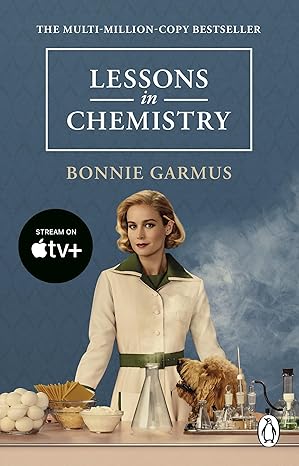- Regional Bar
- Townsville Courts of Law - Celebrating Fifty Years
- Reviews and the Arts
- Book - 'James'
- Interested in Becoming a Hearsay Reviewer?
- Book - 'Hooked: Inside the Murky World of Australia’s Gambling Industry'
- Book - 'Too Soon'
- Book - 'Madame Brussels: The Life and Times of Melbourne’s Most Notorious Woman'
- Book - 'Is A River Alive?'
- Book - Queen Esther
- Book - Confessions of a Minor Poet
- Book - 'Toxic: The Rotting Underbelly of the Tasmanian Salmon Industry'
- Book - 'A Short History of the Gaza Strip'
- Professional Conduct and Practice
- Artificial Intelligence (AI) and the Profession
- Victorian Lawyer with Alleged Tax Debt of $2.6 Million Fights to keep Practising Certificate
- Queensland Courts’ Use of Generative AI Guidelines for Judicial Officers
- Artificial Intelligence (AI) Guidance for Judicial Office Holders Issued in England and Wales
- Incompetence and Discourteous Emails Result in Disciplinary Sanction
- UK Magistrate Sanctioned in Relation to a Political Candidacy Leaflet
- Lawyer Dealt with for Failing to Provide PC Urine Samples
- Concerns Over Judges' Safety in England and Wales
- Northern Territory Lawyer's Name Struck from the Roll for Dishonesty in Admission Application
- Practice Direction 7 of 2025 - Non-Party Requests to Inspect or Copy Documents Filed in Civil Proceedings
- Advocacy
- Verdins’ Sentencing Submissions - Common Challenges
- How to Plead and Prove a Professional Negligence Claim
- War on Trusts: Fortifying the Defences
- Limitation Applied to Transfer of Vicarious Liability
- Artificial Intelligence (AI) and Intellectual Property (IP) fundamentals
- AI in Court Documents – QLD Guidance & the NSWDC’s Response in Gribble
- Ten Rules for Giving Good Evidence
- Electrical ‘Exposure’ not proved by Hearsay Statement Made 2 Days Earlier
- Practice Directions - Accuracy of References in Submissions
- Tracing Into Assets which have Increased in Value
- Inter Alia
- Congratulations Bar Practice Course 84
- Are you Cyber Ready?
- How to Spot a Deepfake Video
- Mashed Potatoes and Murder: a Deadly Tale from Queensland’s Shadowed Past
- Gold Coast Chambers
- How to have Healthier Arguments
- But the Judge Did Say That … ‘Pirate Code’
- Language - 'In Specie'
- Language - 'Mien'
- Holiday Mintie
- From the President
- From the President
- From the Editors
- From the Editors
- Articles
- A New Cause of Action for Serious Invasions of Privacy
- 10 Minutes with...The Honourable Justice Glenn Martin AM
- Thought for this Issue: ‘…[T]oday’s lawyers are tomorrow’s judges [so require]… independence of thought, strength of character and…moral courage’
- A Fortunate (Circuit) Life
- BAQ Guidelines for Cyber Risk Management and for the Use of AI in Legal Practice
- A New Home for Bail and Dangerous Prisoner Applications
- Forensic Evidence and the Courts
- Valuing Lawyers
- Australian Lawyers and Australian Democracy in 2025
- Between Tempests: Judgments at the Edge of the Anthropocene
- Regional Bar
- Bar on the Goldie
- Reviews and the Arts
- Art - Under a Modern Sun: Art in Queensland 1930s-1950s - QAGOMA
- Book - The Flower Bed
- Book - Vaccine Nation
- Book - Unsettled
- Book - The Power of Choice
- Book - The Best Australian Science Writing 2024
- Book - Would that be Funny?
- Travelogue - Annecy (French Alps)
- Book - Journey to Kars: A Modern Traveller in the Ottoman Lands
- Book - Mrs Death Misses Death
- Professional Conduct and Practice
- Cyber Security Critical for Small Business
- SA Barristers’ Chambers Listed on Ransomware Leak Site
- Should you Delete your Old Social and Email Accounts?
- Threats to Judges on the Rise
- Indemnity Costs Ordered in Matrimonial Proceedings Following Material Non-Disclosure
- Bipartisan Submissions in a Criminal Trial Infected with Hallucinating AI - Twice
- Solicitor to Pay Costs for Submissions Affected by the Use of AI
- Appellate Approval of Queensland Barrister being Refused Practising Certificate
- Use of AI in Litigation Carries Responsibilities
- Lawyers Ought be Cautious in Legal Social Media Commentary
- Advocacy
- Evidence as to 'Usual Practice'
- Subpoena Lay Witnesses!
- Knowledge, Belief or Intent: The Difficulties of Particularising a Fraud
- When is Conduct Unconscionable?
- Costs Order Against Non-Party Overturned
- Scope of Non-Party Disclosure: ‘Spear Fishing’ not ‘Drag Netting’!
- Variation of a Contract
- Copyright: Crown use Just Became a Little Wider
- Need for Comprehensive Affidavit in Setting Aside Corporations Act Statutory Demand
- Damages for Remedial Expenditure Actionable by Non-Owner Developer Against Negligent Designer
- Inter Alia
- How Resilient Are You? 4-Question Test and Proven Strategies
- The Independent Bar as a Feudal Guild
- Your Guide to Avoiding the 3pm Slump at Work
- Expressions of Interest to Write in 'Queensland Civil Practice'
- Fixed vs Variable Rate?
- Language - Dyed-in-the-wool
- Language - Formidable
- Language - Lays the Ghost
- Language - Scintilla
- Language - Zeitgeist
- From the President
- From the President
- From the Editors
- From the Editors
- Articles
- How Brawn v The King and MDP v The King Changed the Law on the Common Form Appeal Provisions
- 10 Minutes with…Simon Couper KC
- Thought for this Issue: The Performance Pressure of Being a Barrister…Look After Yourself in How You Manage that...Pressure
- Featured Artist Profile: William Robinson
- The Closing Address in a Jury Trial
- Obligations of New Barristers…and the Other Side of Life
- Swearing-In Ceremony for Justice Doyle and Justice Johnstone
- Hearsay Celebrates 100 Issues
- VALE: Stephen William Zillman 1953-2025
- The AML/CTF Legislation: Using Red Tape to Fight Crime
- Issue 100: June 2025
- Trial Advocacy: Planning and Environment Court
- FCAFC: How to Draw and Conduct an Appeal
- Federal Court - Revisiting the Requirements of Pleadings
- No Tortious Duty Owed by Defendant in Respect of 1960’s Report of Abuse of Another Child
- Proving an Oral Agreement
- When to Assess Damages for Breach of Contract
- Balancing Restraint and Client Choice: Injunctive Relief Refused in Perpetual v Maglis
- Entitlement of Trust Beneficiary to Inspect Trust Documents and Receive Trust Information
- Liability of International Air Carriers
- Significant Changes have been Recommended to Modernise Wills Law in England and Wales
- Issue 99: March 2025
- Fraud! What Does it Mean in Disability Insurance?
- Appeals: Interlocutory v Final Decisions and Jurisdictional Error
- Case Highlight: Health Ombudsman v du Toit [2024] QCA 235
- A Note on Disclaimers in Negligence Law
- Canadian Judges give Contract the Thumbs Up
- Successor Trustee Owes No Fiduciary Obligation to Former Trustee
- 'Courts … can only act on the law as it is, and have no right to … speculate upon alterations in the law that may be made …'
- Valuable Bailed Goods Not 'White Elephants' in Re-supply Settlement Deed
- No Past Consideration Because Loan Advance Part of a Single Transaction
- Utility of – and what Constitutes Detriment for – a Common Intention Constructive Trust
- Issue 98: December 2024
- Get BarBooks for Only $1 Until the End of 2024
- eBrief Ready
- Sherrin Partners
- NSW PD Prohibiting Gen AI Use in Evidence and Judgment Drafting
- Public and Briefing Profession Interest Knowing of Disciplinary Charge against Barrister
- The Barrister’s Role in Moving Uncontested Admissions to Legal Practice
- Imposter Syndrome
- The 'Moral Panic' Over Psychological Wellbeing in the Legal Profession - A Personal or Political Ethical Response?
- Magistrate who Provided Reference for Defendant given Formal Advice for Misconduct
- Drafting Witness Affidavits as to Contested Conversation Content
- Issue 97: September 2024
- Unlock Exclusive Discounts with BarBooks
- eBrief Ready
- LexisNexis
- ACL Unconscionability and Accessorial Liability
- Estoppel by Encouragement – Promise Certainty, Reliance, Detriment and Unconscionability
- The Fruits of an Unlawful Demand (Part 2)
- Non-Publication Orders in Abuse Matters
- The Courts and Arbitration
- More on Private Nuisance from the UK Supreme Court
- An Expert Witness’s Proper Approach in Testimony
- Issue 96: June 2024
- LexisNexis
- Forvis Mazars
- Legal Home Loans
- What’s My Loss? “True Value” under Australian Consumer Law
- US Senior Appellate Judge Opines Generative AI has a Role to Play in Argument and Adjudication
- Vulnerability and Uncertainty in Purely Economic Loss
- The Court’s Role in Supporting Commercial Arbitration and Giving Effect to Arbitration Clauses
- Precedent in English Law
- Federalism, the Courts and Class Actions
- The Role and Running of Commissions of Inquiry: Australian Academy of Law seminar
- Issue 95: March 2024
- Legal Home Loans
- Mazars
- Morgans Tynan Partners
- Noblesse of the Robe
- Citation of Authority - Supreme Court Practice Direction No 1 of 2024
- Lay Witness Evidence “Distorted and Manipulated” by Lawyer and Expert
- A Hitout as a British Barrister
- Lawyer Found to have Engaged in Professional Misconduct for Gross Discourtesy to Fellow Practitioner in Email Correspondence
- Don't Conduct Hearing if You Feel Unsafe, LCJ tells Judges
- Spanish Arbitrator Jailed in Relation to an International Arbitration
- Issue 94: Dec 2023
- Book - Root & Branch
- Book - First: Sandra Day O’Connor
- LexisNexis
- Sherrin Partners
- eBrief Ready
- Welcome to the Bar!
- Landmark Legislation Introduced to Criminalise Coercive Control
- Welcome to the Supreme Court Library's New Website
- Sunshine Coast Bar Conference 2023
- Trials much like ‘Cricket Matches’
- Issue 93: Sep 2023
- eBrief Ready
- Sherrin Partners
- LexisNexis
- Put Paper in the Past
- Bar Flies Scoop the QLS Netball Pool
- Gremlins, Borgs, and Judicial Impartiality in Multi-Member Courts
- The Legacy of Sir Harry Gibbs on the Jurisprudence of Purely Economic Loss
- Therapeutic Jurisprudence and Mediation: Partners in Dispute Resolution
- Qld Law Reform Commission – a New Look
- A Way to Win-Win Negotiation
- Issue 92: Jun 2023
- LexisNexis
- Mazars
- Morgans
- Some Important Changes in the New Property Law Bill
- Class Actions 101
- The QCA and the Law as to Overturning an Unreasonable Verdict
- Not Bound by the Rules of Evidence
- Family Law – Same but Different
- When Ministerial Decisions Must Be Made Personally
- Insolvency – ‘Peak Indebtedness’
- Issue 91: Mar 2023
- LexisNexis
- Morgans
- Mazars
- Winners are Grinners; Well Almost!
- Bar v UQ Students Netball Match – 5 March 2023
- Wigs and Gowns
- CIA 1944 Tips for Organisational Sabotage – Sound Familiar in Modern Mores?
- Family Court Judge Writes to Children Concerning Custody Decision – “I have told your parents to stop the crap”
- Magic Circle Firm Rolls Out 'Gamechanger' ChatGPT-Type Platform
- Privacy – Prospective Statutory Right of Action and Statutory Tort



